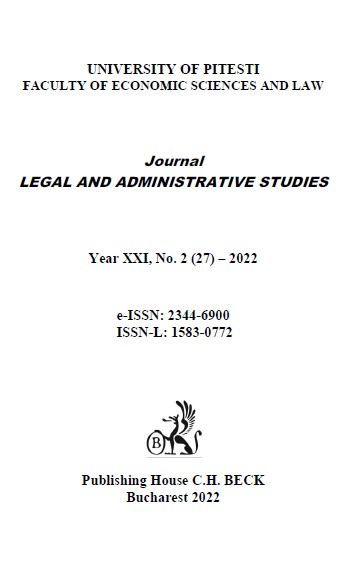GOOD GOVERNANCE AND THE NEED TO REGULATE. IS IT REALLY NECESSARY TO REGULATE? AN INTRODUCTION
GOOD GOVERNANCE AND THE NEED TO REGULATE. IS IT REALLY NECESSARY TO REGULATE? AN INTRODUCTION
Author(s): Marius VăcăreluSubject(s): Governance, Public Administration, Government/Political systems, State/Government and Education
Published by: C.H. Beck Publishing House - Romania
Keywords: Good Governance; Regulation; Needs; Expectations; Evaluation; Long-term perspectives;
Summary/Abstract: The first problem that a man interested in the idea of government has today is that of the quality that political power and public administration can offer to citizens. From this perspective, one will either observe the quality of the political class but the poor performance of public administration, or the other way around – obviously, both negative and positive results of both are possible. However, most governance issues will be analysed at a limited, empirical level, seeking to identify an easy relationship between cause and effect. Obviously, this perspective is that of average human intelligence, but we cannot ignore the fact that it may be higher, as a result of education and today's huge access to sources of information – or lower, for various and not always controllable reasons (e.g. those of a biological nature). Having reached a higher level in the political-administrative hierarchy, the man who analyses governance has to observe realities and correct shortcomings. This is not easy, and short-term interests can end up blocking a stable and long-term development perspective. In this perspective, this man has to choose the best among the possible instruments, trying to provide a coherent vision for institutions and systems of public and private law. As a rule, action is preferred, and less the reduction of political-administrative force. Among the most common forms of action is the regulation of any situation, with variable effects and frequency. But it is necessary to ask ourselves – and we will do so briefly in this text – whether it is not better to use regulation less often, thus reversing a trend that has been common to the states for many decades.
Journal: Studii Juridice şi Administrative
- Issue Year: 27/2022
- Issue No: 2
- Page Range: 86-98
- Page Count: 13
- Language: English

